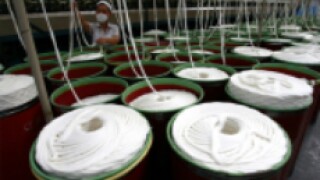India
-
Barclays beat a hasty retreat this week from the bulk of its investment banking operations in Asia, shuttering offices in multiple countries and slashing hundreds of jobs amid a wider global cull in costs and personnel. It did not pull any punches, with the cuts stretching across the equities, loans and bonds products. John Loh reports.
-
A $300m three year loan for Development Bank of the Philippines (DBP) has gone into general syndication via three mandated lead arrangers and bookrunners.
-
Four banks have rolled out a S$1.75bn ($1.22bn) five year financing for a subsidiary of Singapore’s Universal Terminal.
-
Tata Power subsidiary Bhira Investments is understood to have mandated six banks to arrange a refinancing of a $460m loan wrapped up in October 2014.
-
India's Quick Heal Technologies wrapped up investor meetings for its $70m-$80m IPO last week and plans to open books in mid-February, according to sources.
-
Barclays is pulling out of the cash equities business in Asia Pacific as the bank stages a total exit from a number of countries in the region including Taiwan and Korea.
-
London is set to welcome the first Masala bond by an Indian corporate with state-owned Indian Railway Finance Corp (IRFC) picked to lead the way.
-
A lender has invoked an export performance bank guarantee (EPBG) that backed a $475m borrowing for India’s Alok Industries, leading to a repayment of the amount to all the banks that participated in the deal.
-
Tata Steel's $1.5bn refinancing has been launched into general syndication after a senior phase that began in early December.
-
Indian lender Yes Bank signed a memorandum of understanding with the London Stock Exchange (LSE) on Tuesday to develop bond and equity issuance that focus on green infrastructure finance.
-
India's Quick Heal Technologies wrapped up investor meetings for its $70m-$80m IPO last week and plans to open books in mid February, according to sources.
-
The Securities and Exchange Board of India (SEBI), the agency responsible for regulating commodity derivatives traded on Indian markets, has made several changes it said were designed to curb speculation and to reduce volatility in agricultural commodities.












